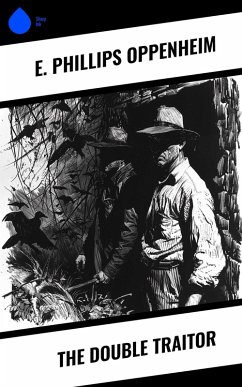
The Double Life Of Mr. Alfred Burton (eBook, ePUB)
A Tale of Intrigue and Deception in Early 20th Century England
Versandkostenfrei!
Sofort per Download lieferbar
0,49 €
inkl. MwSt.
Weitere Ausgaben:

PAYBACK Punkte
0 °P sammeln!
In "The Double Life Of Mr. Alfred Burton," E. Phillips Oppenheim crafts a gripping narrative that intertwines elements of mystery, adventure, and psychological depth. The novel follows Alfred Burton, a seemingly ordinary man with a concealed persona, whose dual existence unfurls within the throes of Edwardian society. Oppenheim's prose is marked by sharp wit and intricate character development, while his use of suspense and intrigue highlights the social mores of the time, effectively positioning the book within the canon of early 20th-century detective fiction. The story resonates with themes...
In "The Double Life Of Mr. Alfred Burton," E. Phillips Oppenheim crafts a gripping narrative that intertwines elements of mystery, adventure, and psychological depth. The novel follows Alfred Burton, a seemingly ordinary man with a concealed persona, whose dual existence unfurls within the throes of Edwardian society. Oppenheim's prose is marked by sharp wit and intricate character development, while his use of suspense and intrigue highlights the social mores of the time, effectively positioning the book within the canon of early 20th-century detective fiction. The story resonates with themes of identity, morality, and the often deceptive nature of appearances. Oppenheim, a prolific British author known as the "Prince of Storytellers," garnered acclaim for his deft weaving of plot and character throughout his extensive bibliography. His personal experiences, including his own brush with the complexities of public life and the secrets harbored therein, heavily influenced the creation of Burton's character. Through his extensive travels and acute observations of the societal elite, Oppenheim became adept at capturing the nuances of a world fraught with hidden duplicity. This novel is a must-read for aficionados of classic mystery and those interested in the psychological intricacies of identity. Oppenheim'Äôs rich storytelling not only entertains but also invites readers to ponder the complexities of the human soul, making it a timeless addition to any literary collection.
Dieser Download kann aus rechtlichen Gründen nur mit Rechnungsadresse in A, B, BG, CY, CZ, D, DK, EW, FIN, F, GR, H, IRL, I, LT, L, LR, M, NL, PL, P, R, S, SLO, SK ausgeliefert werden.













